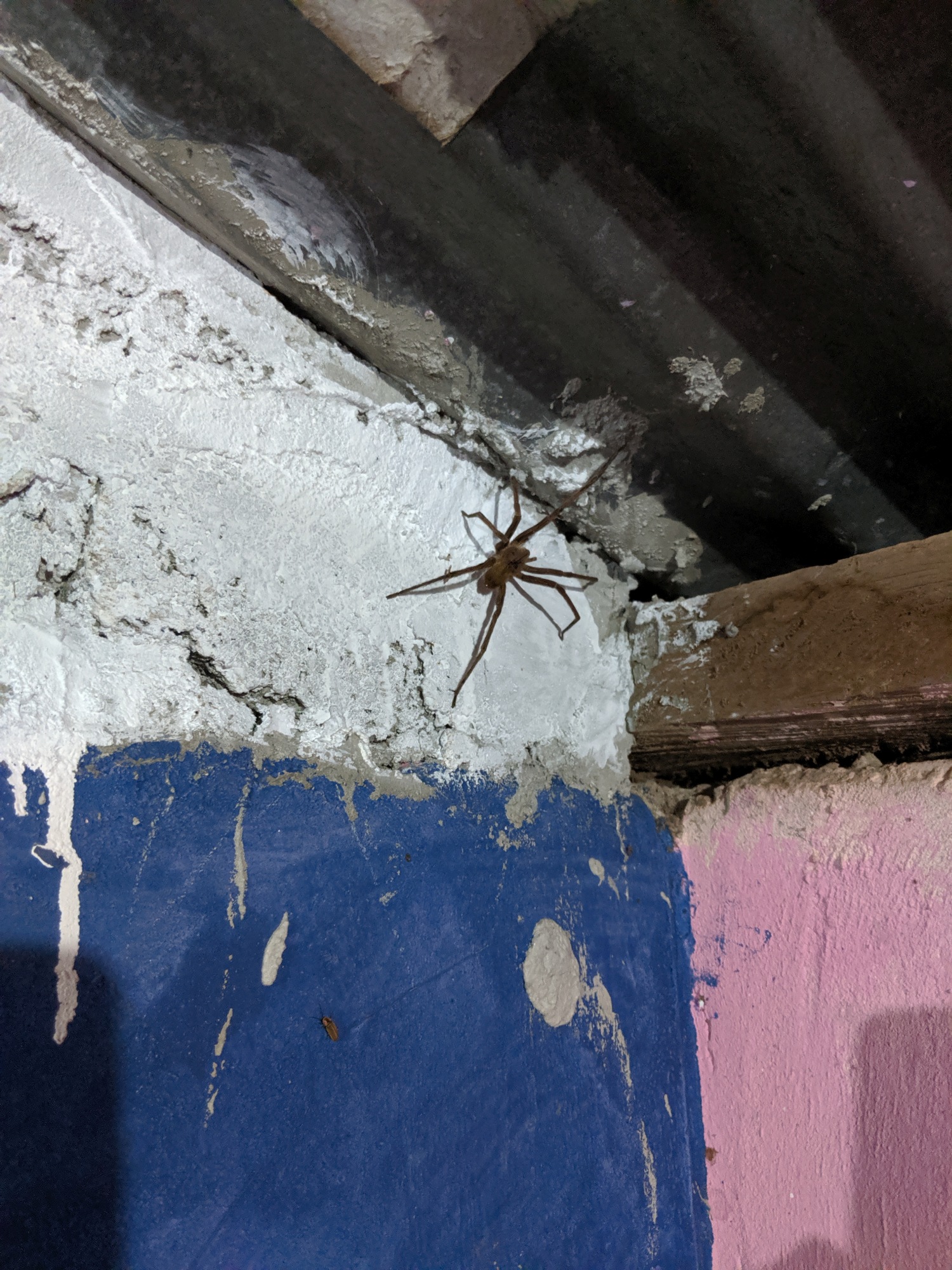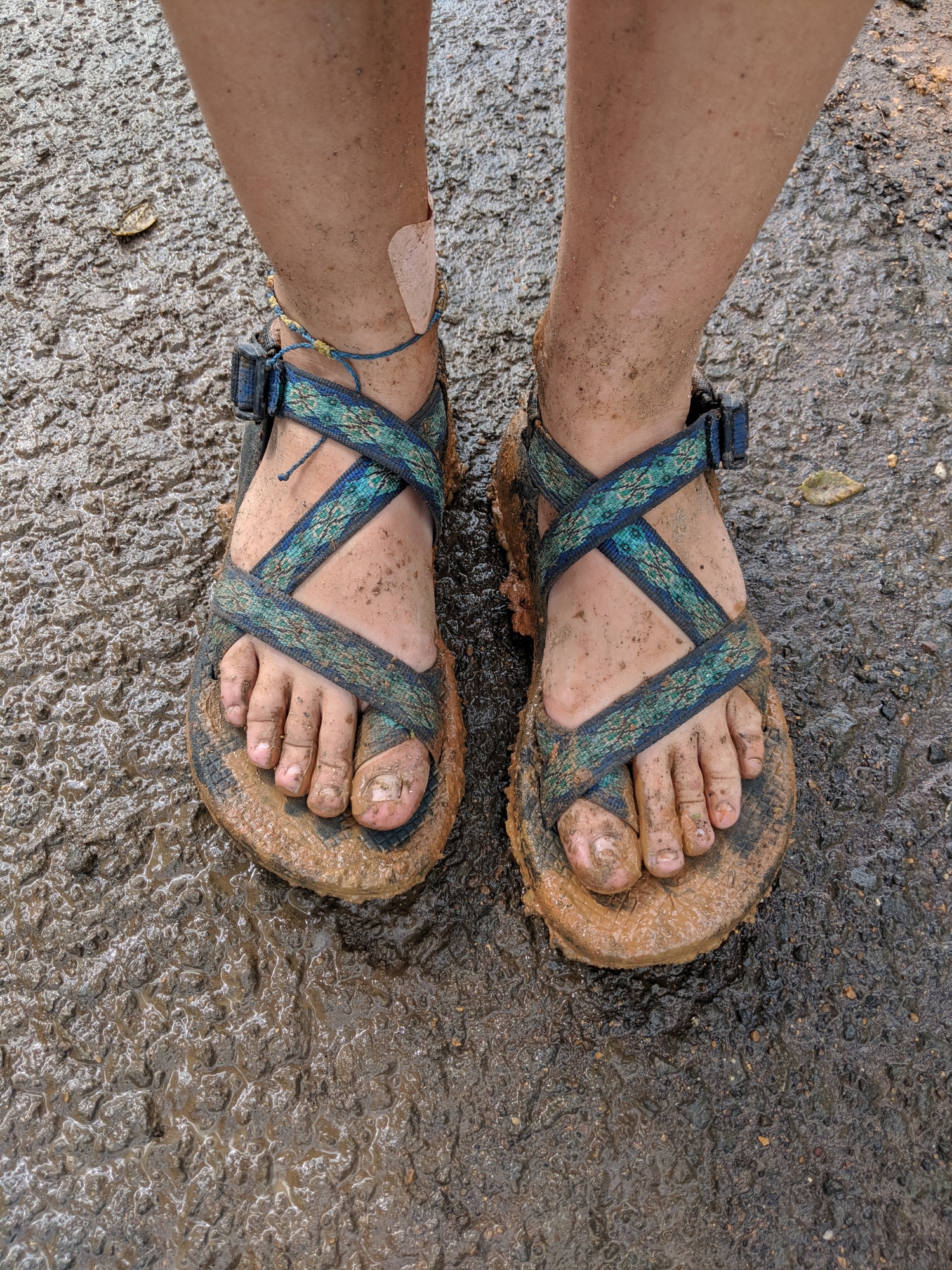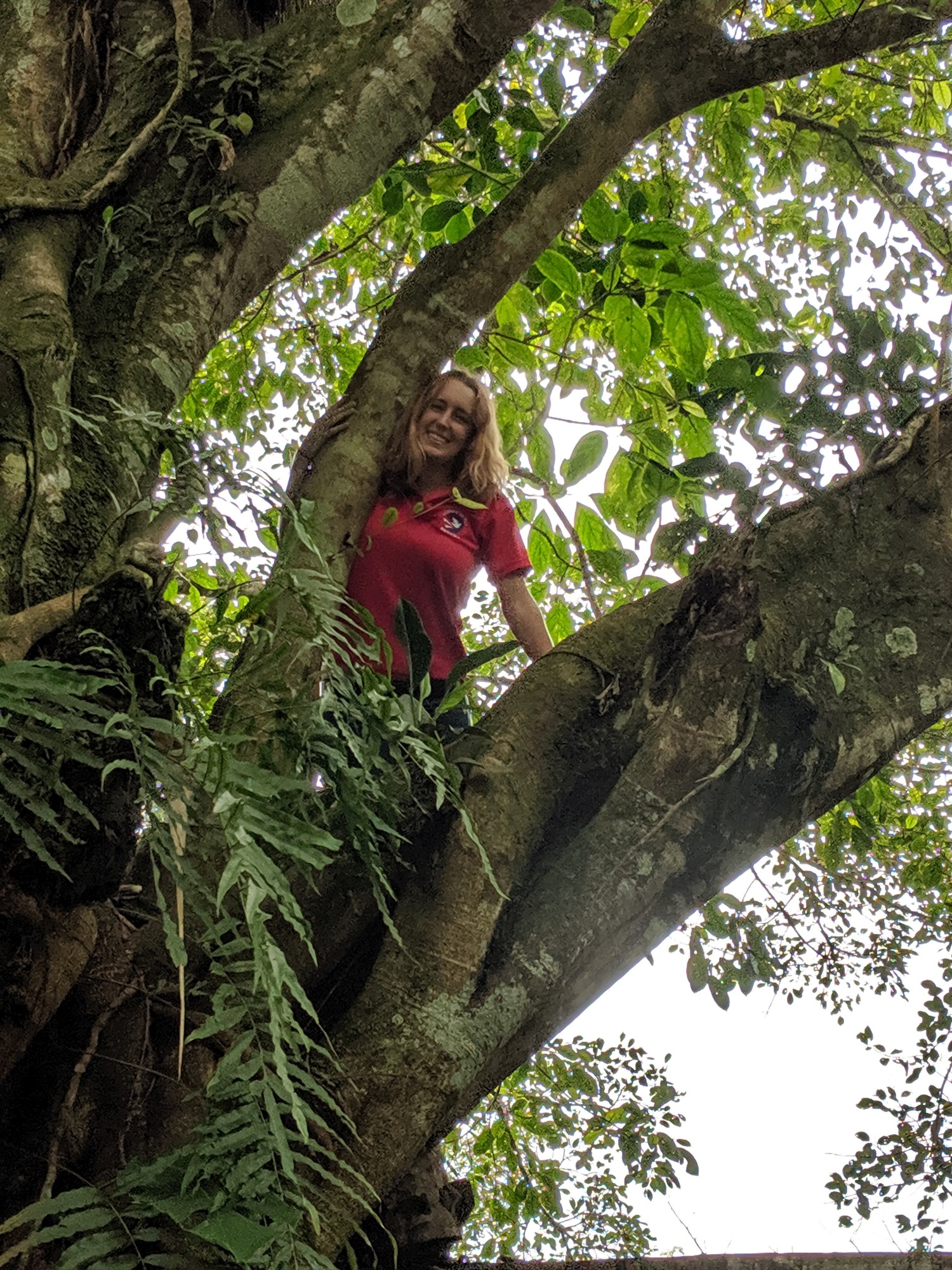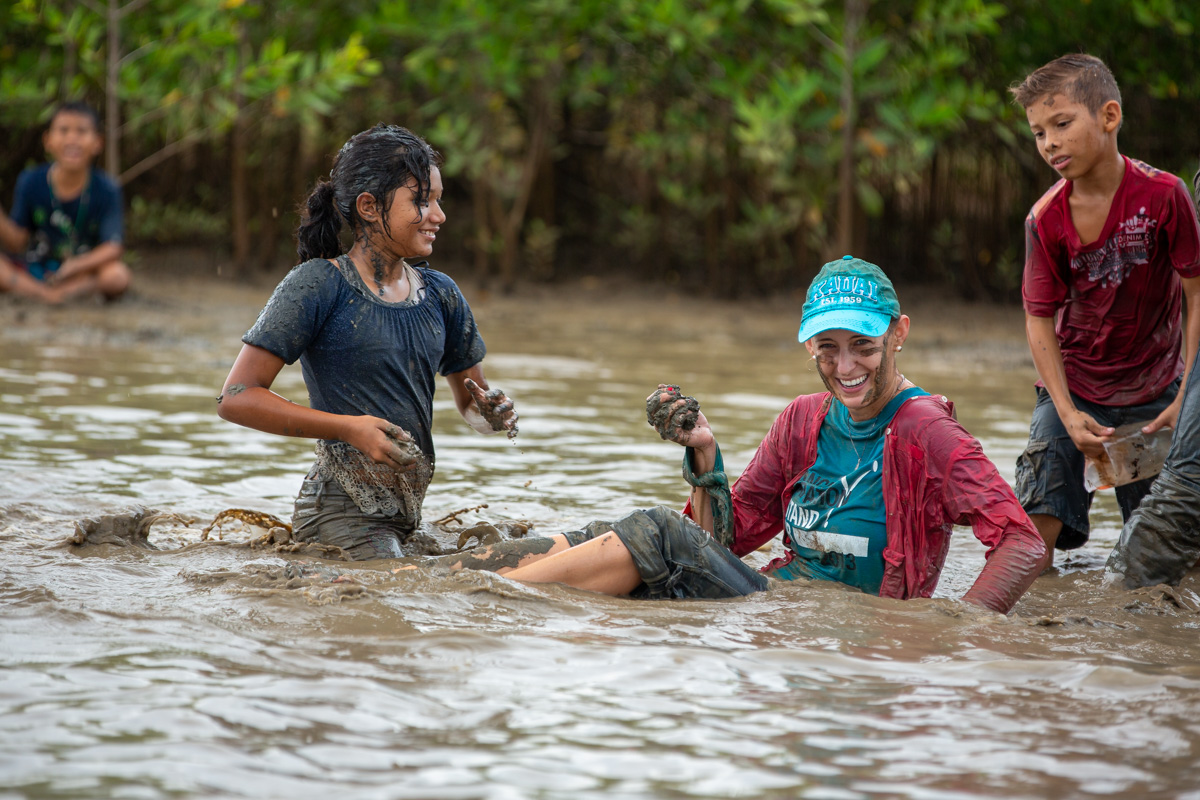
Adjusted.
Click here to listen to me read this blog.
Before leaving for Peace Corps, I remember thinking that I could survive anything as long as I didn’t have to take cold showers, something I have always abhorred. Back then, six short, rapidly passed but life changing months ago, I unrealistically thought the chance of having a hot water shower was probable.
Now, as I lay in bed in the Chiriquí province after one of the most frigid showers of my life, one where I only submitted one limb at a time to the icy suffering, I chuckle at my ignorance. Since I landed in Panama, nervous and exhausted, I’ve only taken a handful of hot showers. And now, thinking back on my now-hilarious assumption that I would have hot water has me reflecting, as I lay here waiting for my second to last day of in-service training to start, about those things I have grown accustomed to that were once such a shock in my new life. Enjoy.
Panama Showers. The first of course, is a whole new way of showering. Showers are a new experience here, and not always an enjoyable one. Although cold showers in the hot region of Azuero that I call home are not as icy as those in Chiriquí (the western, more mountainous region of Panama), it was still an adjustment to life without a water heater.
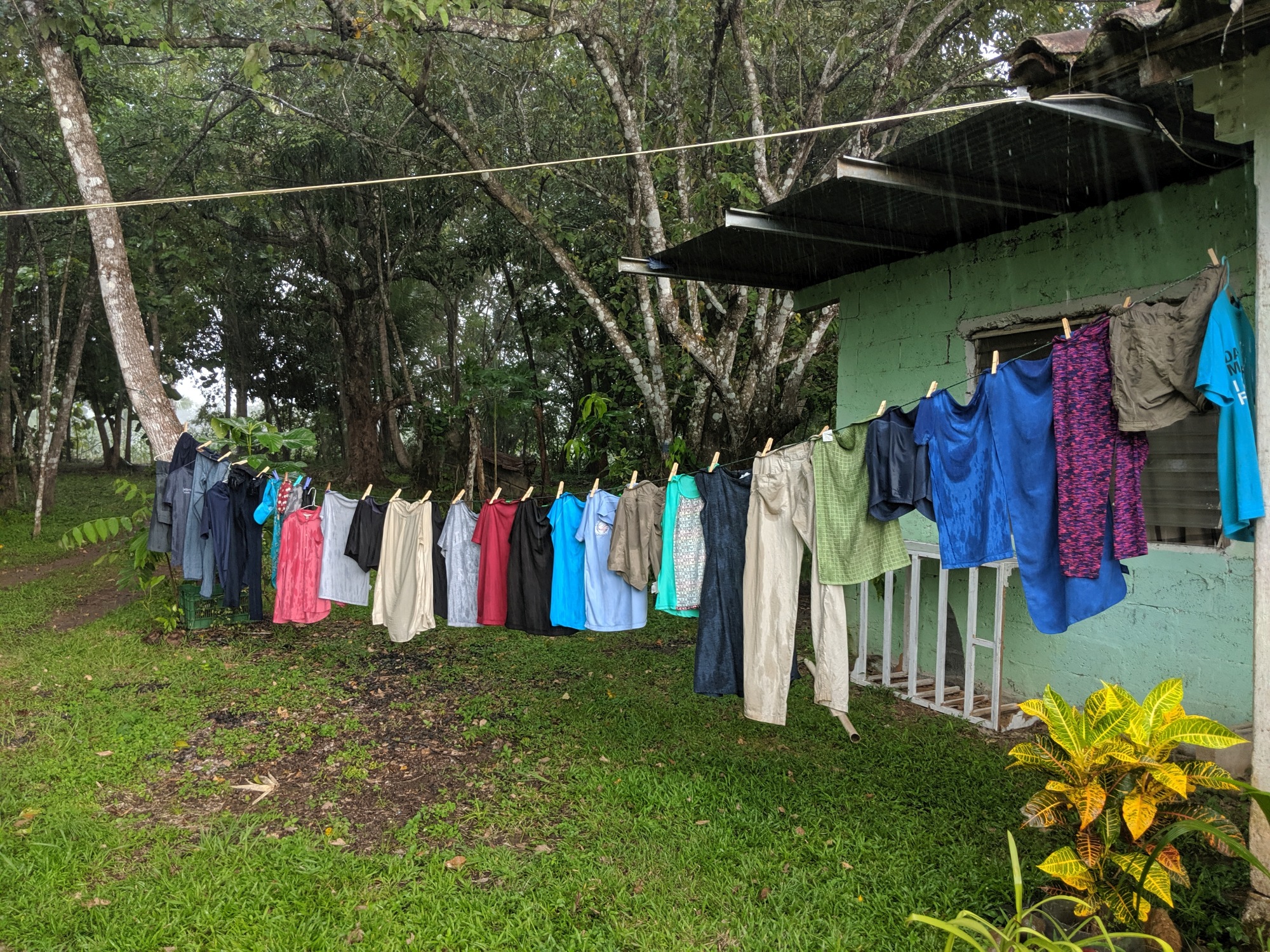
But getting used to cold water (and therefore, fast) showers was not the only adjustment; I also had to learn the art of bucket showering. Luckily, although I am located in the arco seco, the driest region in Panama, my community has good water access (at least during the rainy season). It’s not uncommon to lose water daily, especially in the afternoon or during nighttime hours, but it’s uncommon to be without water for an entire day or longer. But even when I do lose water, I’m prepared, because during my time in training, my host families house lost water after 7pm daily, so I had the opportunity to learn how to take a bucket shower, something my host mom was very used to teaching us newly arrived gringos. A bucket shower is simple – you simply store water so that when the water goes out, you have water to shower, cook with, and drink. Then, when it’s time to shower, you use your bucket, take a cup, gourd, or whatever container you wish, and pour water over yourself. An environmental benefit of this method is that you use much less water than when the water is running. I’ve given myself a fun challenge of determining what’s the least amount of water I can use to shower with and still get clean. I can proudly say that I can shower (including washing my hair) with a single wine bottle’s worth of water. Peace Corps gives you strange talents.
Bugs/Spiders/Scorpions. I like to say that my house is one with nature because I live with insects. I live in an older house surrounded by trees and roofed with clay tiles, which are known for housing… well, everything. Houses in Panama are generally not enclosed like those in the U.S., and there are gaps, holes, and windows without screens making my home the home of other living things as well. Geckos live in the rafters of my roof, spiders decorate my walls, and mosquitos creep between the cracks. I’ve only seen two full grown tarantulas (not inside my house thankfully), but I’ve killed many scorpions including one that woke me up at 4am when it was crawling down my leg. Bats also live in my house (I’ve given up trying to evict them), but they work great as environmentally efficient fans and probably eat some of those darn mosquitos hanging out.
Eating… everything. I spent my first three months in my community visiting all the houses (about seventy) and chatting with the people. In the region of Azuero, when visiting someone’s house, it’s customary to be handed food, whether it’s a plate with a couple cookies and chicha (juice) or a full meal. And if you refuse the food, it’s rude. So naturally, I tend to eat whatever is handed to me. Before arriving in Panama, I was not a fan of white rice or beans, which happen to be the main sample foods of almost every plate here. Luckily, after so many plates of rice and beans, I’ve grown accustomed to it and actually now really enjoy it. I’ve also had some interesting new foods I hadn’t tried before, including pigs tail, pigs foot, pigeon, and cow liver.
Dirt/Mud. If we’re being honest, I’ve never been one to avoid the mud and dirt, as can be seen by an albums worth of photos of my face covered in mud or little Becca playing in sandboxes and mud puddles. But getting accustomed to dirt and mud in Panama is a whole new level. Although the main road through my town is now being paved with asphalt, most roads in my town are dirt roads and I’m routinely walking across fields or trampling through tall grass or woody areas. When it’s dry, walking along the roads leaves my feet caked in dust, and when it rains, they’re caked in mud. Keeping my feet clean is a never-ending battle I’ve essentially given up on. I’ll have clean feet in two years.
Switching languages. Compared to the days of my parents’ Peace Corps service, I have the opportunity to speak a lot of English. Although I don’t have reliable cell service in my community, I can usually send voice messages to friends and family and receive them too. And if I want to have a phone call to the U.S., I can take a fifteen-minute walk up to the water tank at the highest point in my town and talk there (if it’s not raining, then I lose reception). Plus, I’m close to other volunteers and can always go meet up with them. With all this English speaking, it can sometimes be difficult to fully immerse myself in Spanish. My Spanish has improved immensely since I arrived in country, but switching between languages sometimes has been something to get used to and I often find myself accidently inserting English words into Spanish conversation or not being able to come up with a word in English and using the Spanish one instead.
Talking about poop. Peace Corps volunteers like to talk about poop. In a world where constipation, diarrhea, parasites, bacteria, amoebas, and worms are all common occurrences, a normal bowel movement is something to brag about. Most of us at this point have already had the milestone poop test, where you poop in a cup and hand it to someone at a desk for them to determine what nasty thing is inhabiting your body and what medication you need to get it out. I can proudly say I was the first one of my group to complete this test after having severely painful stomach cramps from bacteria in my gut for several days back in March. Talking about poop is pretty normal for us now, and we like to compare our parasite or amoebas stories and even just complain about how its been four days since we’ve pooped. So please, when we come home for Christmas, excuse us when we ask the dinner table, “So how y’all been pooping lately?”
In the past six months, I’ve grown accustomed to a lot of things, many more than I wrote about in this blog. Earlier this week I was talking with another volunteer and we laughed at the thought that in most families the returned Peace Corps volunteer is always the crazy uncle or weird aunt, someone who asks strange questions and is a little different or has unbelievable stories. And while most of us will return to the U.S. in two years, go through culture shock, and then readjust to our lives in the states, there will always be that part of us that lived here, experienced Panama, and we will never quite be the same. Because although we joke about pooping out parasites or taking thirty-second frigid showers, the changes we go going through are more profound. And at least for me, the person I was is not the person I am.
I can shower with no more water than fits in a wine bottle, but I’ve also learned to make something I need from a piece of garbage because the store is an hour and half away. I can deal with spiders as big as my hand in my kitchen, but I’ve also learned how to be alone in my house, without cell phone service or connection to the outside world, every evening, sometimes dealing with my feelings of loneliness and isolation. I can switch from English to Spanish seamlessly, but I’ve also learned how to sit and converse with someone on a porch, without being in a rush, without checking my phone, and just enjoy, without thinking about the next thing I have to do.
The changes don’t always come quickly, but these six months have flown by, taking the new me with them, and leaving the old one behind. Almost every day I learn something new and slowly, over time, become accustomed to the changes in my life. It’s been a crazy six month start and I still have a year and half to go. And as much as the challenges and changes can be difficult and painful, I can’t wait to see what else this journey has waiting for me, down the dusty, or sometimes muddy, road.

